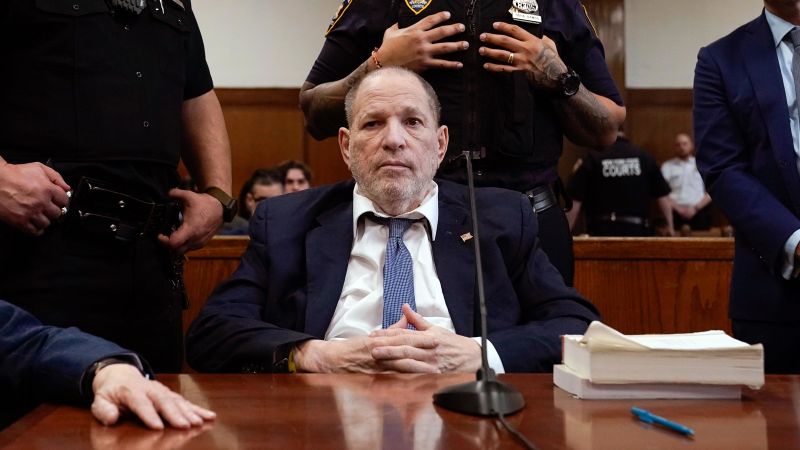In 2020, the conviction of Harvey Weinstein for rape and sexual misconduct marked a pivotal moment in the #MeToo movement, eliciting widespread acclaim as a significant victory for women advocating against workplace abuse. At that time, Weinstein’s sentencing to 23 years in prison represented hope for survivors and showcased a cultural shift towards accountability for powerful figures in Hollywood. However, this narrative took a dramatic turn when, a year later, the New York Court of Appeals overturned his conviction, deeming that the inclusion of unrelated testimonials in the original trial resulted in an unfair process for Weinstein.
As the case rekindles public and media interest in 2025, the stakes are heightened for both Weinstein and his accusers, with a markedly evolved cultural and political atmosphere affecting the expectations and emotional toll involved. Legal representation for the survivors, such as Gloria Allred, speaks to the painful revisitation of trauma that these women face as they prepare once more to testify against Weinstein. Mimi Haley, one of the primary accusers and a former production assistant for him, is prepared to relive her experiences in court, hoping their testimonies, alongside those of Jessica Mann, will lead to a just resolution.
Haley’s courage in agreeing to testify again has drawn admiration from Allred, who emphasizes the daunting emotional weight of revisiting such a traumatic event. The case now includes an additional accuser, a Jane Doe, who has alleged assaults by Weinstein dating back to 2006. This new complication adds another layer of complexity to the retrial and shows how the past continues to intrude upon present justice endeavors. According to Lindsay Goldbrum, the attorney representing Jane Doe, the strength of these women in coming forward—amid fears and anxiety—is commendable, with an expectation that the jury will resonate with their truth.
In this retrial, the focus narrows to three key accusers rather than the six women who testified in the initial process, something that has raised eyebrows among advocates and observers alike. Allred challenged the court’s decision to exclude the testimonies of additional witnesses, expressing disappointment over the overturned conviction and the implications it holds for other survivors. The heroes of the #MeToo movement, she argues, refuse to bow to fear and are determined to reclaim their narratives, despite the challenges posed by legal boundaries.
Complicating these proceedings further is the substantial media scrutiny surrounding the case and the prevalent cultural discourse born from the #MeToo movement. Weinstein’s defense argues that the pervasive media coverage surrounding his case unfairly influenced juror perceptions, igniting discussions about the capacity for a fair trial in such a charged environment. Arthur Aidala, leading Weinstein’s defense, highlighted that while societal priorities have shifted since the first trial, the resultant tension and scrutiny remain present, which may impact how jurors view the evidence.
The emotional toll on the jurors, influenced by protests and a media storm during the initial trials, is a concern that Aidala acknowledges. He hopes that jurors will approach the facts of the case devoid of bias from previous impressions. Weinstein himself maintains his innocence, having been charged and publicly accused of sexual misconduct by over a hundred women. His defense argues that his initial conviction was overshadowed by societal pressure, a point that remains controversial within legal and social spheres alike.
As the retrial unfolds amidst a backdrop of evolving societal views on sexual misconduct, Weinstein’s health significantly complicates matters. Currently held at the Rikers Island prison complex, concerns have been raised regarding his deteriorating condition, which his representatives assert is exacerbated by the harsh prison environment. These health challenges have added urgency to the ongoing discussions regarding his treatment and the implications for his legal battles.
Survivors previously involved in the case express trepidation over the potential outcomes of Weinstein’s retrial. One survivor, Dawn Dunning, conveyed her fears about the possibility of Weinstein’s release, characterizing the thought of his freedom as “terrifying.” Nonetheless, Allred maintains that, irrespective of the legal outcomes, the strides made over the years to advocate for women’s rights in the workplace must be acknowledged as a lasting legacy of Weinstein’s prosecution. The underlying sentiment expressed by Allred is that the fight for justice is ongoing and that movements born from such high-profile cases will continue to resonate and drive change, regardless of the eventual courtroom decision.











